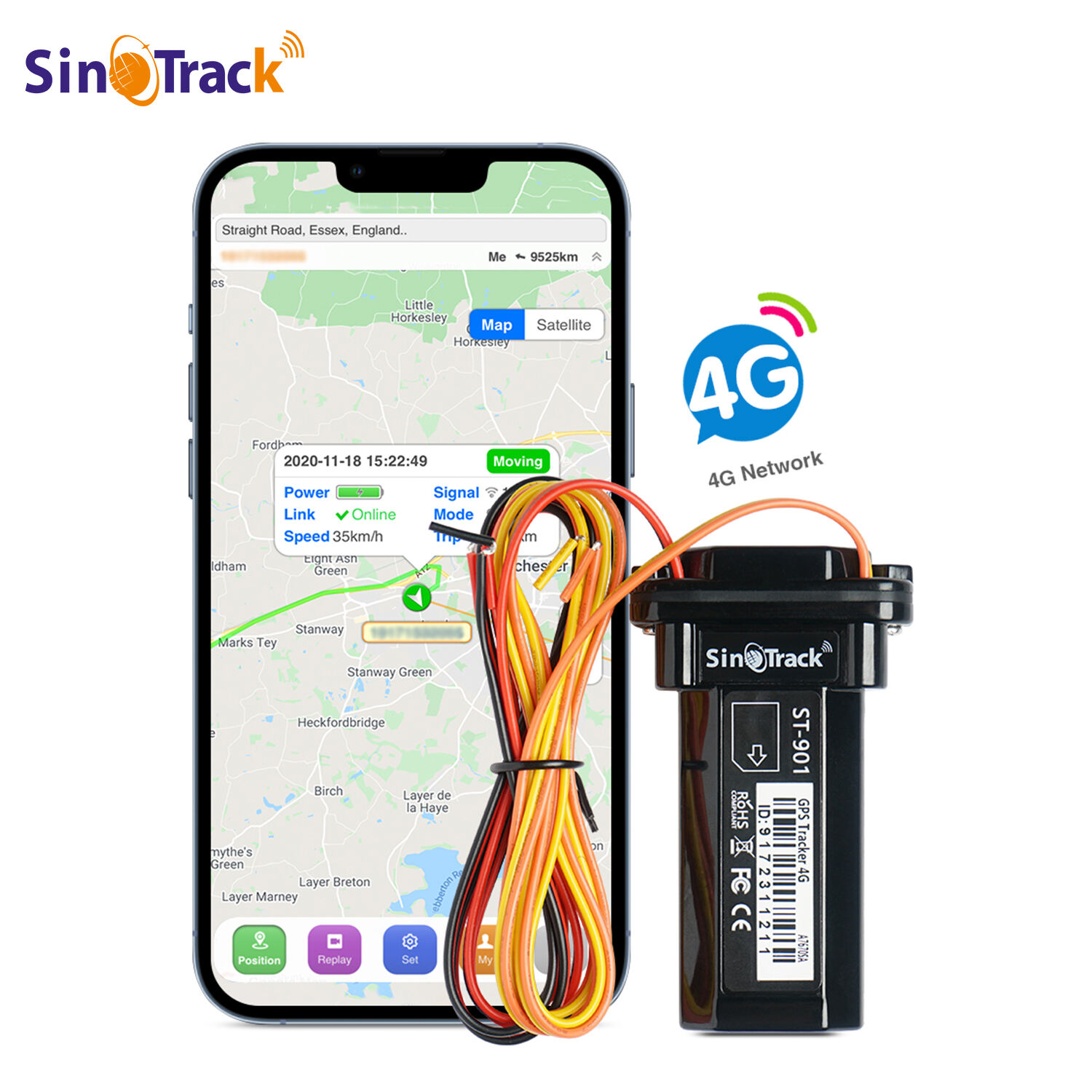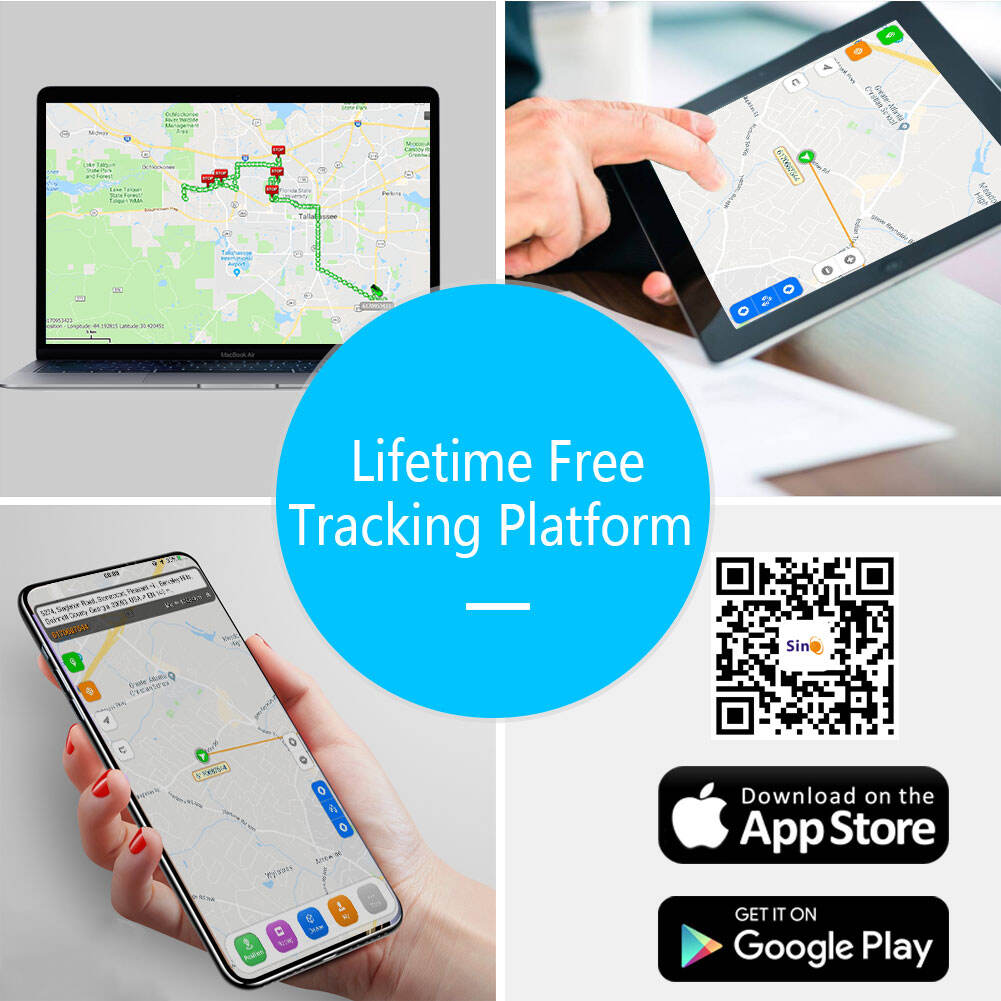4G GPS Tracker: High-Speed Tracking for Real-Time Accuracy
In a world where knowing the exact location of vehicles, assets, or even loved ones matters, a 4G GPS tracker stands out as a game-changer. Unlike older GPS trackers that rely on slow 2G or 3G networks, a 4G GPS tracker uses high-speed 4G technology to deliver instant, accurate location data. This speed and precision make it ideal for everything from fleet management to personal safety. Let’s explore how a 4G GPS tracker works, its key benefits, and why it’s the top choice for anyone needing real-time tracking.
What Makes a 4G GPS Tracker Different?
A 4G GPS tracker combines two powerful technologies: GPS (Global Positioning System) for determining location and 4G cellular networks for sending that data instantly. Here’s what sets it apart from older trackers:
- Speed: 4G networks transmit data up to 10 times faster than 2G. This means a 4G GPS tracker updates location every 1–5 seconds, while older trackers might take 30 seconds or more. For example, if a delivery truck takes a wrong turn, a 4G GPS tracker alerts the manager immediately, allowing quick corrections.
- Reliability: 4G networks are widely available, covering over 95% of populated areas in most countries. This reduces “dead zones” where older trackers lose signal, ensuring you can track almost anywhere—city streets, rural roads, or highways.
- Capacity: 4G networks handle more data at once. A 4G GPS tracker can send not just location, but also details like speed, direction, and even sensor data (e.g., temperature in a refrigerated truck) without delays.
In short, a 4G GPS tracker doesn’t just tell you where something is—it tells you right now, with no guesswork.
Key Benefits of Using a 4G GPS Tracker
Whether for business or personal use, a 4G GPS tracker offers advantages that older technologies can’t match:
1. Real-Time Location Updates
The biggest benefit is instant tracking. With a 4G GPS tracker, you can watch a vehicle move on a map in real time, just like a live video. This is critical for:
- Fleet managers rerouting drivers around traffic.
- Parents checking if their teen arrived safely at a friend’s house.
- Businesses tracking high-value assets (like construction equipment) to prevent theft.
Older trackers, with their slow updates, often show a location that’s already outdated. A 4G GPS tracker eliminates this lag.
2. Better Accuracy, Even in Tough Conditions
A 4G GPS tracker uses advanced GPS chips that lock onto satellite signals faster and more accurately. This means:
- Pinpoint location: Most 4G GPS trackers show location within 3–10 feet, compared to 20–50 feet with 2G trackers. This precision is vital for finding a parked car in a crowded lot or a lost hiker in the woods.
- Works in challenging environments: Tall buildings, dense trees, or bad weather (rain, snow) rarely block a 4G GPS tracker. Its strong signal cuts through obstacles that confuse older devices.
For example, a 4G GPS tracker in a delivery van can still send accurate location data when driving through a downtown area with skyscrapers, while a 2G tracker might show it blocks away.

3. More Than Just Location: Extra Features
The speed of 4G allows a 4G GPS tracker to offer features beyond basic tracking:
- Geofencing: Set virtual boundaries (like a school zone or warehouse). A 4G GPS tracker sends an alert the second the tracked item enters or leaves the area. Parents can get notified if their teen drives into a high-risk neighborhood, for example.
- Speed alerts: Get notified if a vehicle exceeds a set speed (e.g., 60 mph on a 40 mph road). This helps fleet managers enforce safe driving or parents teach responsible habits.
- Sensor integration: Many 4G GPS trackers connect to sensors that monitor temperature, humidity, or motion. A food delivery company can track if a refrigerated truck stays cold enough, ensuring food safety.
- Two-way communication: Some 4G GPS trackers let you send messages to the device (e.g., “Return to base” to a delivery driver) or receive SOS alerts from a person carrying a personal tracker.
4. Long Battery Life and Durability
Despite their speed, 4G GPS trackers are designed to be efficient:
- Battery life: Personal 4G GPS trackers (for kids or seniors) can last 3–7 days on a single charge. Hardwired trackers (for vehicles) use the car’s battery, so they never run out of power.
- Tough design: Many 4G GPS trackers are waterproof, dustproof, and resistant to drops. This makes them suitable for outdoor use—tracking boats, bikes, or construction tools in harsh conditions.
For example, a 4G GPS tracker attached to a boat will keep working even in rain or splashes, while an older tracker might short-circuit.
5. Future-Proof Technology
2G and 3G networks are being phased out worldwide (many will shut down by 2025). A 4G GPS tracker avoids the need to replace your device soon, as 4G networks will be supported for at least the next 10 years. This makes it a smart long-term investment.
Who Should Use a 4G GPS Tracker?
A 4G GPS tracker is useful for almost anyone needing reliable tracking:
- Fleet managers: Track delivery trucks, service vans, or taxis in real time to improve efficiency and safety.
- Parents: Monitor teens’ driving or young kids’ location (with a wearable 4G GPS tracker).
- Business owners: Protect assets like tools, trailers, or expensive equipment from theft.
- Outdoor enthusiasts: Hikers, campers, or boaters can carry a 4G GPS tracker to send their location in emergencies.
- Logistics companies: Track cargo, especially perishable goods, with temperature sensors to ensure quality.
How to Choose the Right 4G GPS Tracker
With many options available, focus on these features to find the best 4G GPS tracker for your needs:
- Battery life: For personal trackers, choose one that lasts 5+ days. For vehicles, hardwired models are best.
- Size: Smaller trackers work for assets or wearables (e.g., a keychain tracker for kids). Larger ones may have more features (like cameras) for fleet use.
- Additional sensors: If tracking a refrigerated truck, look for a 4G GPS tracker with a temperature sensor. For drivers, speed and acceleration sensors are useful.
- User-friendly app: The best 4G GPS trackers come with simple apps that show real-time maps, alerts, and history. Avoid complex software that’s hard to use.
- Price: Basic 4G GPS trackers start at $50–$100 (device) plus $10–$20 monthly for data. Fleet models with advanced features cost more but save money in the long run.
FAQ
How accurate is a 4G GPS tracker?
Very accurate—usually within 3–10 feet. In open areas (no tall buildings), it can be as precise as 1–3 feet.
Can a 4G GPS tracker work without internet?
No, it needs a 4G network to send data. But most trackers store location data when offline and sync once they reconnect, so you won’t lose info.
Is a 4G GPS tracker legal to use?
Yes, as long as you own the vehicle/asset or have permission to track it. Laws require notifying drivers if a vehicle has a tracker.
How much data does a 4G GPS tracker use?
Not much. Basic tracking (updates every 5 seconds) uses about 50–100 MB monthly—less than a phone’s data plan.
Can a 4G GPS tracker be hacked?
Reputable brands use encryption to protect data, making hacking unlikely. Choose trackers from trusted companies to avoid risks.
Do 4G GPS trackers work internationally?
Many do, but check if the tracker supports 4G bands used in the countries you need. Most global trackers work in 100+ countries.
Is a 4G GPS tracker better than a 5G tracker?
5G is faster, but 4G is more widely available and cheaper. For most users, a 4G GPS tracker is more practical—5G is unnecessary unless you need ultra-fast video streaming.

